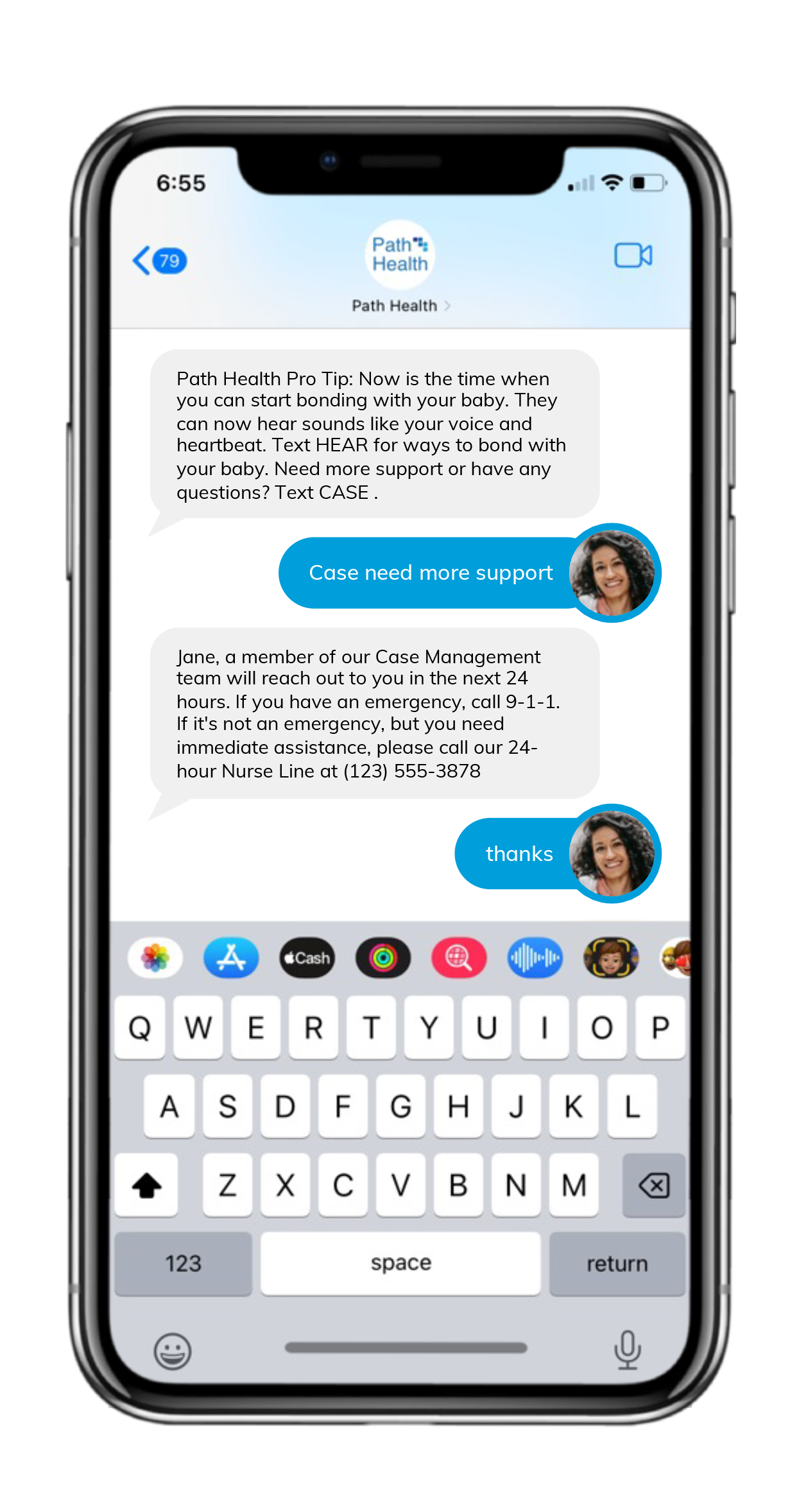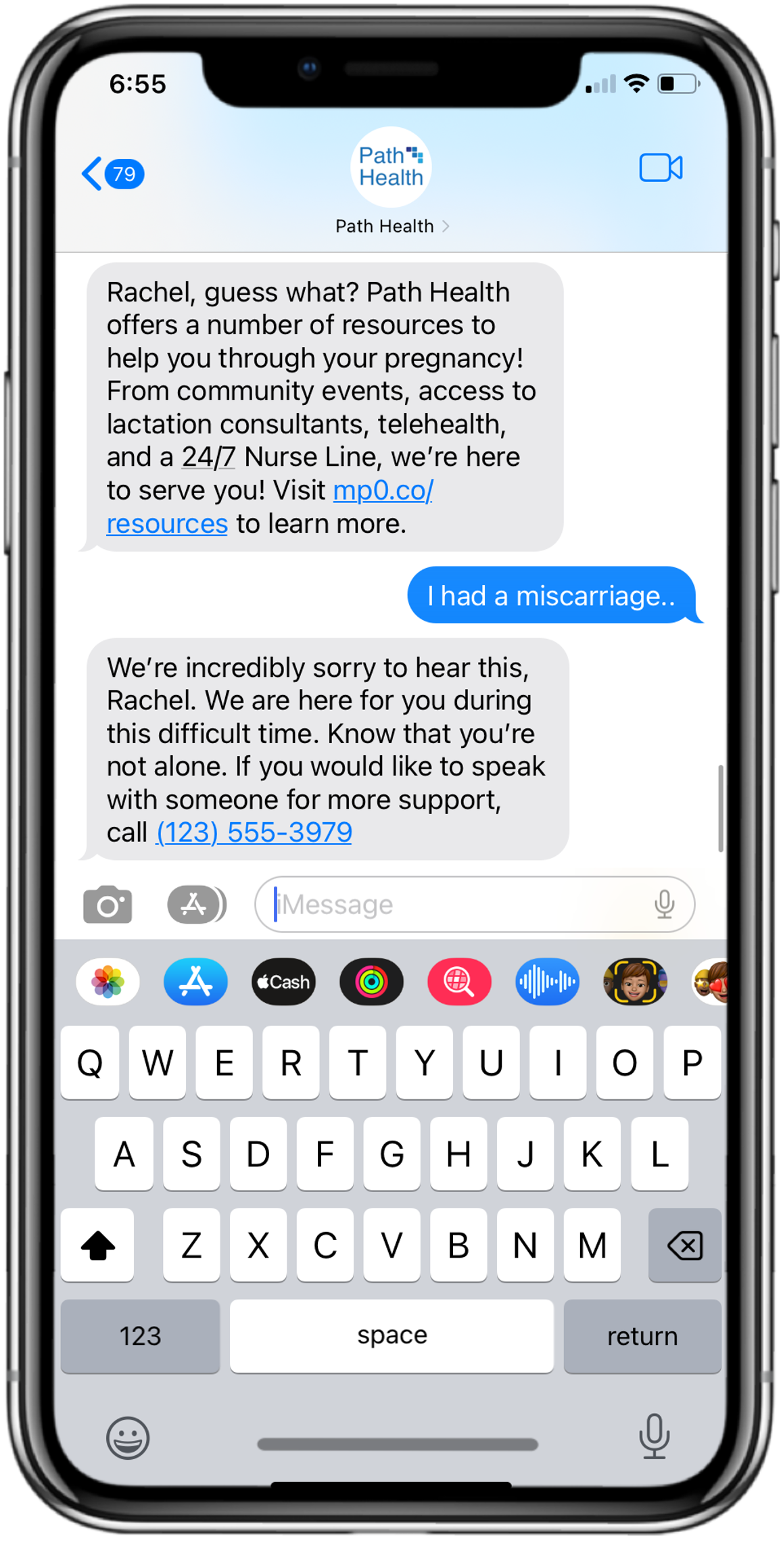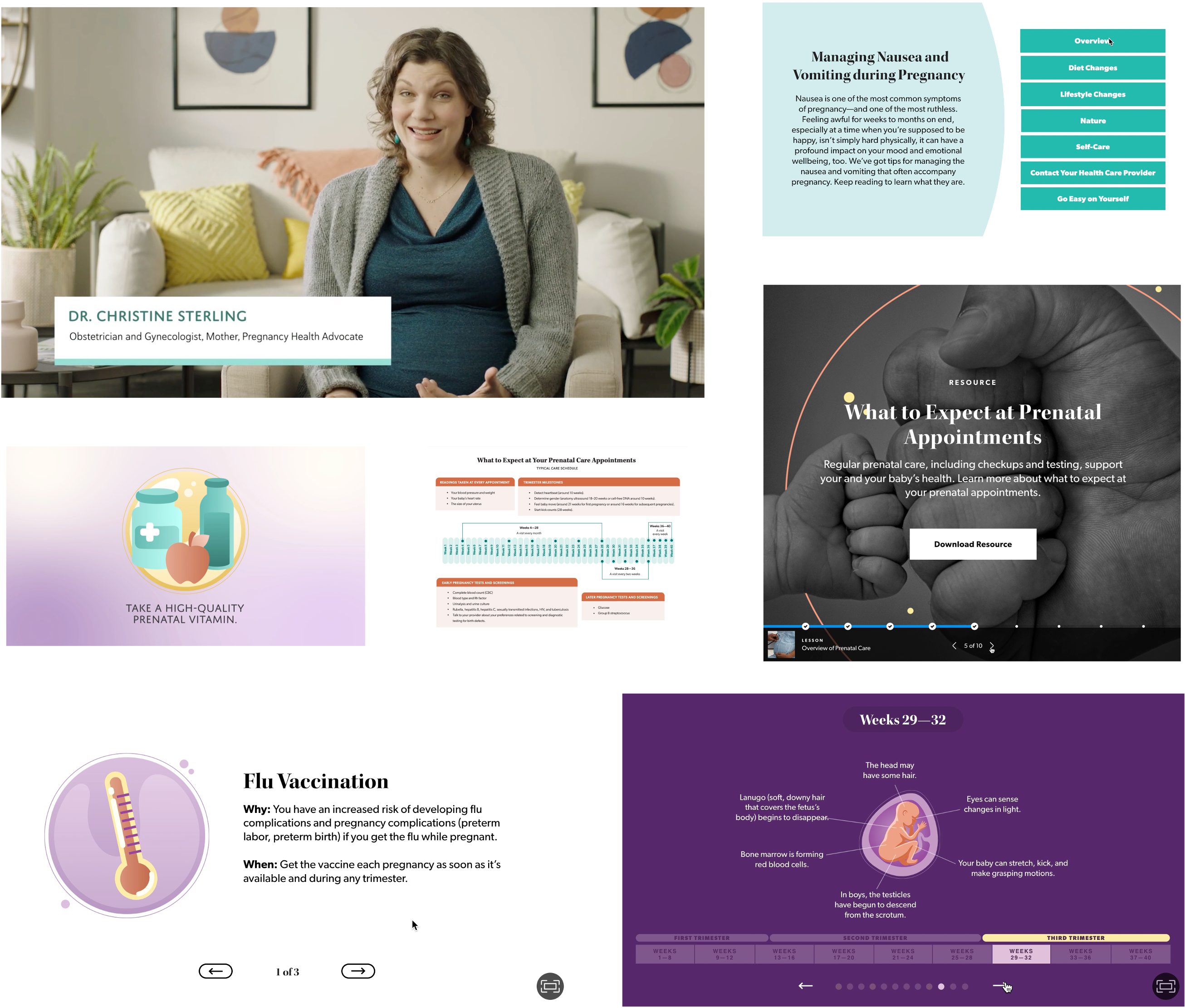Despite having a highly advanced healthcare system, the U.S. faces a concerning reality as it records the highest rate of pregnancy-related deaths among developed countries. Alarmingly, the maternal mortality rate surged by 40% in 2021 compared to the previous year. While part of this increase can be linked to the COVID-19 pandemic, it’s important to note that maternal mortality rates were already on an upward trend even before the pandemic struck.
Up to 60% of pregnancy-related deaths and adverse maternal health disparities in the U.S. can be prevented by
- broadening accessibility,
- having higher quality of care and
- improving health education and available resources.
Proper preventive and continuity of both prenatal and postpartum care are imperative, and health organizations play a foundational role in improving maternal health disparities for our nation.
In an era where technology is pivotal in improving maternal healthcare outcomes, conversational AI in healthcare emerges as a key player. As the U.S. grapples with rising maternal mortality rates, integrating advanced conversational AI into healthcare strategies offers hope. This innovative technology can significantly improve maternal health outcomes by providing timely, personalized, accessible support to expectant and new mothers.
Our conversational AI solutions are designed to bridge the gaps in maternal healthcare inequalities, offering tailored guidance and vital information that can make a real difference in the lives of women during their pregnancy and postpartum journey.
In this article, we explore the transformative potential of conversational AI in improving maternal health disparities and reducing the alarming rates of pregnancy-related complications in the U.S.
The role of healthcare communication technology
Organizations continually lean on digital trends in an increasingly technology-driven world to drive growth and business efficiencies. 97% of U.S. adults own a mobile phone, and with generative AI platforms such as ChatGTP and social media AI photo filters becoming mainstream, we’re beginning to see the power and potential of healthcare communication technology.
But how does this tie into health organizations and maternal health?
A lot more than you may think. mPulse has harnessed innovative technology and digital trends and applied them to the healthcare landscape to educate and empower health consumers to take action. We continually deliver best-in-class health outcomes by borrowing inspiration from the world’s most innovative digital trends. We create highly relevant and engaging digital health solutions experiences through:
- Technology’s leading trends,
- in-house learning and design experts, and
- access to rich data and population insights
Our solution to prenatal and postpartum care leverages this expertise. It tackles the challenges associated with our nation’s poor maternal health outcomes, opening doors to accessibility, catering to care preferences, and building knowledge.
Maximizing mobile outreach with conversational AI to enhance maternal healthcare accessibility
 We know 97% of American adults own a mobile phone, so leveraging this communication channel to reach more consumers is a great place to start. Scaling this resource requires automation, and to avoid abrasion, we lean on conversational AI and Natural Language Understanding (NLU) to direct consumers to the right tools and resources.
We know 97% of American adults own a mobile phone, so leveraging this communication channel to reach more consumers is a great place to start. Scaling this resource requires automation, and to avoid abrasion, we lean on conversational AI and Natural Language Understanding (NLU) to direct consumers to the right tools and resources.
Step-by-Step Process to Enhance Maternal Healthcare Accessibility:
- Identify Nearby ObGyns and Clinics: Automatically send pregnant members a list of the closest ObGyns and clinics based on their residential location.
- Provide Easy Scheduling Options: Include a phone number for members to call and schedule their appointments easily.
- Recognize and Respond to Barriers: Utilize Natural Language Understanding (NLU) to detect if a member mentions a lack of access to reliable transportation.
- Offer Solutions for Transportation Barriers: In cases where transportation issues are identified, automatically respond with information about available resources that offer low or no-cost transportation options.
- Simplify Appointment Setting: Ensure the entire process, from providing information to addressing barriers, is streamlined to facilitate quick and easy appointment scheduling for members.
Addressing maternal health disparities with culturally competent and personalized solutions

The disparities in maternal health outcomes and the lack of representation and consideration for consumers who are disadvantaged by our health system are undoubtable and require prioritization. mPulse is committed to helping reduce maternal health disparities and inequalities by designing our programs to be relevant, relatable and address the needs and preferences of diverse communities.
Our pregnancy solution is culturally competent, with multilingual messaging, NLU tailoring, and inclusive replies and opt-outs (miscarriage opt-out, not saying “pregnant women”). For SDoH-level data, we factor in zip codes to deliver relevant resource links and inclusive visual and streaming content representation. To create a personalized and relevant experience throughout, the member’s due date is used to provide timely information, and custom keys (name, provider name, etc.) further enhance personalization.
How we leverage digital trends for enhanced maternal health education
Information sharing and access to the news today are more broadly available thanks to smart devices and the internet. With Americans spending an average of 1,300 hours each year on social networking platforms such as Facebook, Instagram, and TikTok, it’s critical to derive inspiration from these platforms to maximize engagement and remove friction.
More than 50% of expectant Americans download and use pregnancy-related apps for educational resources and pregnancy-related updates. Health organizations are perfectly positioned to harness these trends and provide a frictionless experience to expectant consumers to engage and deliver the right education and resources, close care gaps, and gather rich population insights.
mPulse’s prenatal and postpartum solution uses a combination of expert-led videos from Dr. Christine Noa Sterling, board-certified ObGyn, interactive modules, and short stories and animations to educate and empower members around key milestones related to their and their baby’s health.
Content is sent via SMS at key moments based on each consumer’s due date, encouraging them to schedule routine appointments and make healthier choices.
Our in-house behavioral scientists and instructional strategists leverage learning theory and high-quality cinematography and animation to produce content designed to drive action. See for yourself.

mPulse’s prenatal and postpartum solution
mPulse’s pregnancy solution is a 12+ month interactive SMS program designed to improve quality performance and deliver better health outcomes.
The solution specifically targets multiple HEDIS® measures and is proven to engage and deliver outcomes such as a 2X engagement rate with maternity care management services, a 7.1pp increase in the prenatal and postpartum care measure (PPC) owned by NCQA, and 61% engagement across 400,000 Medicaid members. By incorporating our behavior change methodology throughout all conversations and streaming content, our comprehensive approach broadens access, caters to individual preferences, and educates to improve health outcomes at scale.





